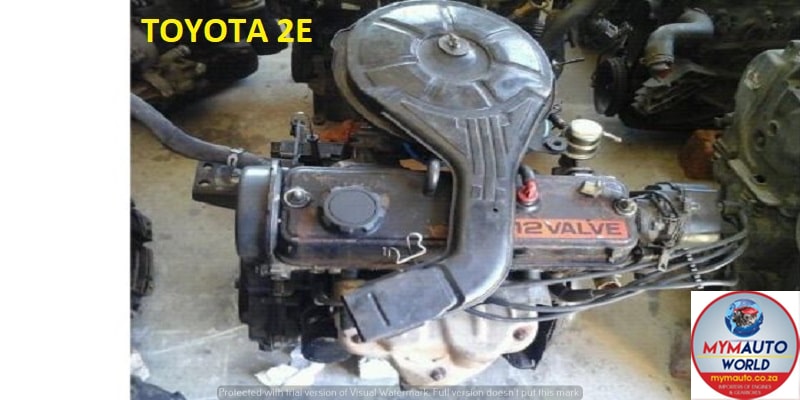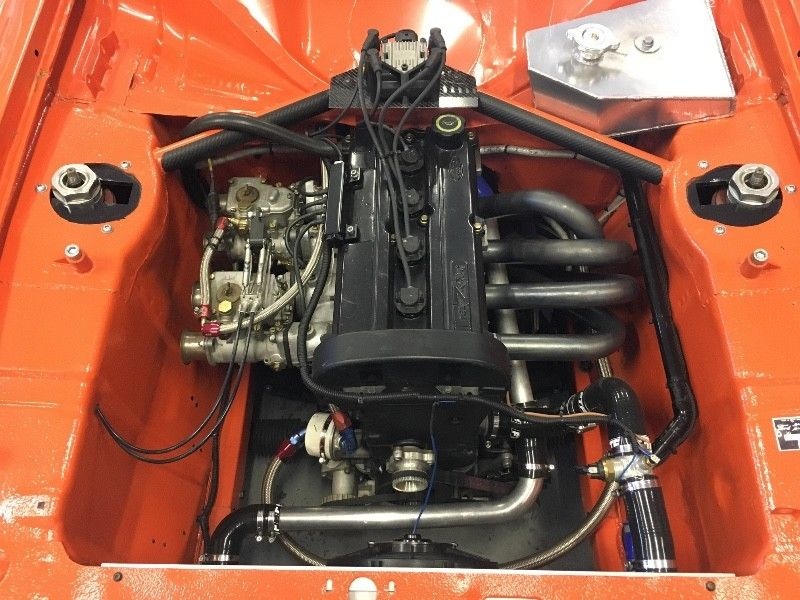Toyota Tazz: A Practical and Efficient Car for City Driving and Beyond
Toyota Tazz: A Practical and Efficient Car for City Driving and Beyond
Blog Article
Discover the most up to date Trends in Engine Innovation With Tazz
In the swiftly progressing landscape of automobile technology, Tazz stands at the forefront, highlighting substantial innovations in engine systems that focus on both development and sustainability. From hybrid engines that maximize fuel efficiency to the emergence of hydrogen gas cells, the patterns forming modern-day powertrains are not only enhancing efficiency but additionally resolving important environmental obstacles.
Crossbreed Engine Innovations
Hybrid engine technologies represent a pivotal change in automobile modern technology, integrating the benefits of inner combustion engines with electric propulsion systems. This integration not just enhances gas efficiency yet also lowers discharges, conference progressively rigorous environmental laws. By using both power sources, hybrid engines can maximize performance, providing power when needed while saving gas during much less requiring driving problems.
Current developments in crossbreed technology include enhancements in battery performance and regenerative braking systems. These developments permit greater energy recuperation during deceleration, which can be rerouted to assist in acceleration or power accessory systems. Moreover, manufacturers are concentrating on light-weight products and portable designs to optimize the efficiency of hybrid powertrains.
The advancement of plug-in crossbreeds has actually additionally increased the marketplace, enabling chauffeurs to charge their cars utilizing typical electric outlets. This attribute often enables significant all-electric range, further decreasing dependence on conventional fuels. tazz. As the automobile industry remains to evolve, hybrid engine technologies are expected to play an essential role in bridging the gap in between standard lorries and completely electric designs, offering a transitional solution that accommodates varied customer requirements and preferences
Advances in Electric Powertrains
The auto landscape is swiftly advancing, with electric powertrains becoming a leading force in sustainable transport. Breakthroughs in electric car (EV) technology are significantly boosting customer, performance, and performance experience. Secret innovations consist of improvements in battery chemistry, which have actually enhanced energy thickness, reduced billing times, and prolonged total battery life.
Solid-state batteries, for instance, promise to reinvent the market by giving greater safety and security and efficiency compared to standard lithium-ion cells. Additionally, innovations in regenerative stopping systems are allowing lorries to recuperate power during slowdown, adding to general performance.
In addition to battery innovation, electrical motor layouts are becoming much more innovative. Innovations such as integrated electric motors and progressed thermal monitoring systems are assisting to enhance power distribution and reduce weight, ultimately improving automobile characteristics.

Collectively, these advances underscore the dedication to change in the direction of cleaner, a lot more effective transportation solutions, positioning electrical powertrains at the leading edge of vehicle development.
The Rise of Hydrogen Fuel Cells
Significantly, hydrogen gas cells are getting traction as a viable choice to typical interior combustion engines and battery electrical lorries. This innovation utilizes the chemical energy saved in hydrogen, converting it into power with an electrochemical reaction with oxygen. The key by-product of this process is water, making hydrogen gas cells an eco-friendly alternative with no emissions at the tailpipe.

Car manufacturers are significantly purchasing hydrogen fuel cell innovation, acknowledging its possibility click over here now for long-range applications and quick refueling capabilities that rival traditional fuels. Furthermore, fields such as sturdy transportation and public transit are particularly well-suited for hydrogen fuel cells, where battery electric services may fall short because of weight and variety restrictions.
As research study and financial investment proceed to broaden, hydrogen fuel cells are poised to play a considerable function in the future landscape of clean transportation and energy services.
Enhancements in Internal Combustion Engines
Advancements in interior combustion engine (ICE) modern technology are transforming traditional lorries to satisfy modern ecological requirements and performance assumptions. Direct gas injection, for circumstances, enables for better atomization of gas, leading to more full combustion and enhanced power outcome.
Additionally, turbocharging has actually acquired prestige, enabling smaller sized engines to deliver greater performance without the weight of bigger engines - tazz. This technology not just increases performance but additionally contributes to decrease fuel intake. Variable valve timing systems are likewise being refined, allowing engines to adjust to different driving problems for improved torque my explanation and responsiveness
Additionally, the use of light-weight products in engine building is coming to be basic, more enhancing fuel performance by decreasing general lorry weight. Engine control units (ECUs) are progressively innovative, enabling real-time modifications that maximize performance and discharges.
These improvements jointly signify an essential change in ICE technology, aligning with worldwide sustainability objectives while still giving the performance chauffeurs anticipate from their lorries. As the industry develops, these enhancements proceed to form the future of typical automotive engineering.
Future Trends in Engine Effectiveness
Considerable visit our website improvements in engine performance are prepared for as manufacturers focus on integrating advanced innovations to satisfy rigid ecological guidelines and customer demands. The shift towards electrification, hybrid systems, and alternate fuels is reshaping the automotive landscape, driving developments that enhance fuel economy and reduce emissions.
Among the vital fads is the execution of sophisticated materials and producing techniques. High-strength alloys and light-weight compounds add to decreased vehicle weight, thus boosting total effectiveness. Furthermore, the adoption of turbocharging and variable shutoff timing modern technologies enables enhanced power output from smaller sized engines, additionally improving fuel economic situation.

Verdict
Advancements in crossbreed engine systems, electrical powertrains, and hydrogen fuel cells demonstrate a commitment to decreasing exhausts while boosting efficiency. Improvements in internal combustion engines and a focus on light-weight materials contribute to overall engine efficiency.
From hybrid engines that enhance fuel effectiveness to the introduction of hydrogen gas cells, the fads forming modern-day powertrains are not just boosting efficiency yet additionally resolving critical environmental challenges.Crossbreed engine technologies stand for a crucial change in auto modern technology, incorporating the advantages of interior combustion engines with electric propulsion systems.Additionally, turbocharging has gained prestige, permitting smaller sized engines to provide higher performance without the weight of bigger engines. In addition, the fostering of turbocharging and variable valve timing technologies allows for boosted power result from smaller engines, even more enhancing gas economic climate.
Enhancements in internal burning engines and an emphasis on lightweight materials add to total engine efficiency.
Report this page